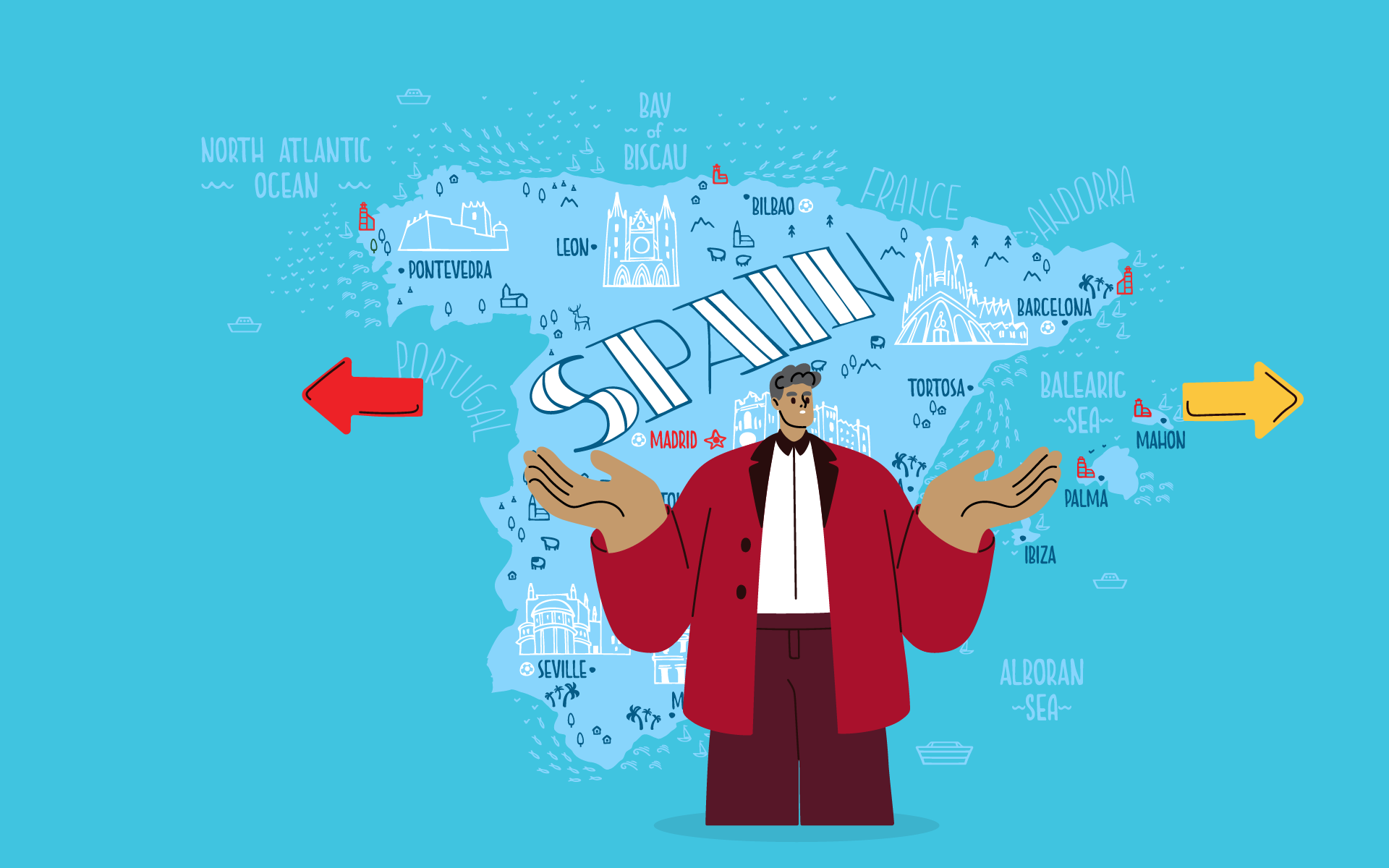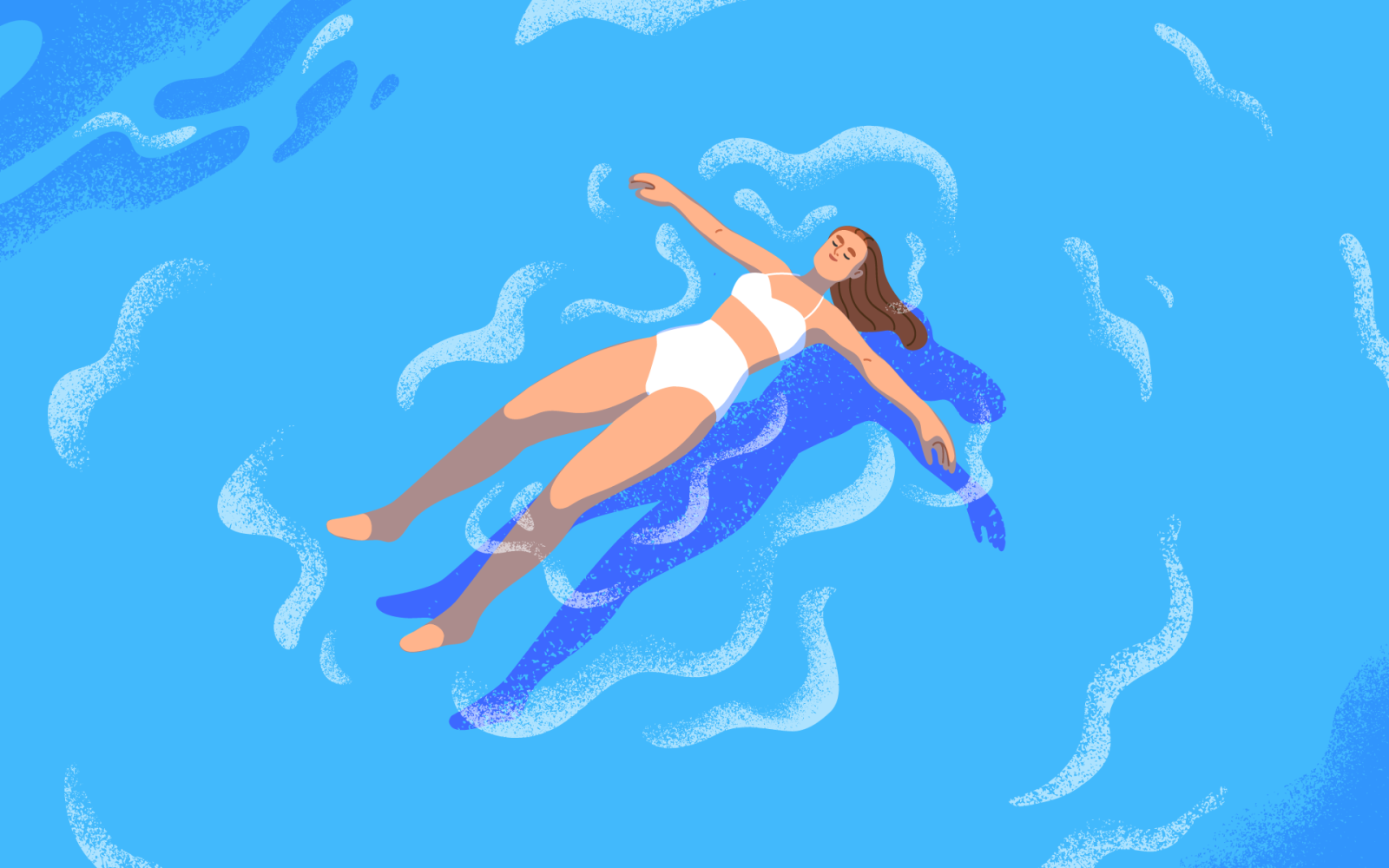How I found a new me on the day I got hopelessly lost in Spain

It was a day of panic and pain, but it led me in the right direction.
Sweaty palms, blistered feet and chafed thighs – I was in pain. But my physical pain was a walk in the park compared to my emotional pain. I was drowning in a flood of panic.
Let me be clear: I wasn’t walking in a park. I wasn’t even walking. I was blindly stumbling in the southern Spanish city of Seville. I was lost. Spectacularly lost.
The pressure to get “unlost” was immense.
It was the mid-1990s. I was a rookie reporter on a men’s lifestyle magazine called, ironically, Directions.
My job was writing stories like “I Go Against the Grain: One Man’s Shaving Confession” and “Groom Service — 7 Tips To Look Your Best”.
When the magazine was invited to cover an adventure race in Spain, there was no question that the editor was going. Well, until he discovered his passport had expired.
I was the only reporter with a valid passport. After writing a week’s worth of grooming bumf in two days, I boarded a plane to Spain with 20 grizzled South African sports hacks.
We landed and made our way to a hotel in a town 30 minutes from Seville. We dropped our bags at the hotel and returned to Seville to spend a couple of hours in the city.
Our bus pulled up next to a pub and we spilled out. It was 11am. We agreed to meet the driver back at the pub at 1pm to return to the hotel.
I started walking with a reporter called Ben. We didn’t get far when he announced that he wanted to go to McDonald’s.
I hadn’t come to Spain to eat a burger, so I decided to explore on my own. I’ve got a lousy sense of direction, so I wrote the street’s name on my hand. If I got lost, I’d hop into a taxi and show the driver my hand.
Besides, I wasn’t planning to go far. I found a tapas bar and sampled mixed olives, fried baby squid, meatballs, and crispy potatoes, which I washed down with “una cerveza, por favor”.
Afterwards, with an hour to kill, I went for a stroll. I don’t know if it was the una cerveza or my poor sense of direction (probably both), but when I got back to the pub where we were meant to meet, it was no longer there.
I was lost. Mild panic level 1 activated. It was 12.30. I figured I was close to the pub, so I’d wander for a bit because I was bound to stumble on it.
Twenty minutes later, when the pub was still playing hard to find, it was time for Plan B: hop into a taxi and show the driver my hand.
I looked at my hand, but the street name had smudged into an inky splodge. Panic ramped up to level 3.
I continued to hunt for the pub. It had vanished. At 1:30 pm, half an hour late, the pressure to find the group before I was abandoned was massive. I ran up and down streets, peering down side alleys. Nothing.
At 2.30 pm, an hour and a half late, my panic level had reached code RED.
I realised that even if I found the pub, the group would be long gone. Maybe I could take a taxi to the hotel?
Because my inclusion on the trip was at the last minute, I hadn’t been given any information about it, not even the name of the hotel. Perhaps it was the jet lag, but I hadn’t noticed the name when we dropped our bags.
I couldn’t ask for help, because I didn’t know what to ask for.
Not only was I lost, but because my Spanish was limited to “una cerveza, por favor”, I was lost in translation.
I would have to find a public phone, figure out the code to South Africa, phone my mother, ask her to phone the editor, ask him to phone the trip’s organisers to find out what hotel we were staying at, and relay the info back to me. It could take hours.
What if the editor wasn’t around? What if the trip’s organiser didn’t answer? Of course, today I would have snapped a pic of the pub on my cellphone or asked Ben for a location pin, but that wasn’t possible in 1995.
Sure, there were cellphones, but the batteries were so heavy that if I had taken one to Spain, I would have exceeded my luggage allowance. Besides, an international cellphone call was equivalent to the cost of a medium-sized home in Camps Bay.
I considered making my way to the airport and buying a ticket back home, but I would have lost my job.
I had no idea what to do, so I just kept walking, my heart pounding and the pressure compounding with every step.
At 4pm, with panic level at “SEVERE RED” and out of options, I heard the sounds of raucous revelry and I swear someone shouted, “bliksem”.
Maybe I was hallucinating.
I followed the noise and there were the journos at the pub where we’d been dropped off.
I thought they had been waiting for me, but they hadn’t even noticed I was missing.
They had settled in for a day’s drinking at 11am and hadn’t left. When the bus came to fetch the group at 1pm as arranged, they told the driver to return later (“much, much later, Señor”).
That experience taught me to open my heart and to be sympathetic to people in a crisis.
If I see someone stranded or a person tells me they need help getting home, I try to assist, because I know the pain of being lost.
When I get lost, I remember those three hours of blind panic a quarter of a century ago. I know I will find my way home, whether it’s by turning on Waze when I’m actually lost, or taking deep breaths when my life has gone off-track.
In those moments, I remind myself that feeling lost in life is a process that signals an opportunity for change and growth. Because you never know what you may find, just around the corner.




